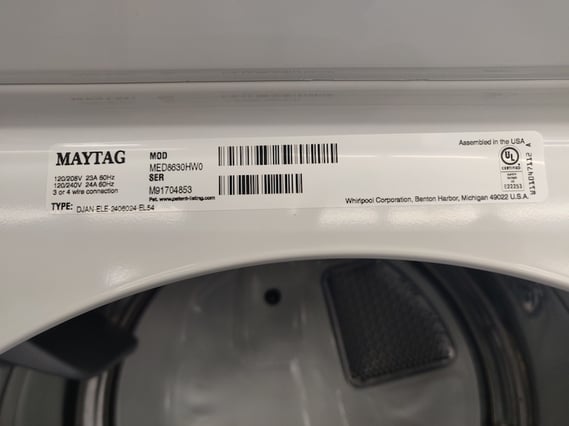
If I had to guess what the number one issue is at the core of the questions, comments, and complaints I receive through this blog, it'd be reliability. Our mortgages, rents, health care costs, and even grocery costs have increased significantly over the past 30 years - more than can be explained by inflation alone - and wages have not kept up. So people want to know whether an appliance we reviewed will last, or why their appliance got top marks but broke down within 2-3 years.
And the fact that I can't answer that very legitimate question is a source of frustration for me.
If I can't answer the real question, I'd at least like to explain WHY I can't answer it. So, let's dig in: What are the barriers to predicting appliance reliability?
Table of Contents:
The Barriers
1. The Constant Influx of New Models on the Market
Manufacturers are constantly producing new models to add to the market and discontinuing other ones. These models may use a mosaic of parts, some that were used in previous generations and some that have been re-engineered or are totally new.
From this perspective, each appliance is really a "mosaic" of existing, re-engineered, and "new" parts, and we have no way of analyzing these mosaics at a statistically significant scale.
Some models are discontinued and replaced with something new after a year, while others may stay on the market for 2-3 years. That leaves very little time to accumulate useful data before the model becomes irrelevant.
Further complicating the problem:
2. The Same Model May Use Different Parts
Tracking the reliability of model #ABC123 isn't just about how long it stays on the market. Manufacturers may make "tweaks" to that model over the months or years that it is available. Sometimes a model made in a different factory will look the same on the outside but have one or more slightly different parts on the inside.
These tweaks or different factories and other variables are summarized by something called a "run number," which is usually tacked on after your unit's model number on the model/serial tag.
In the example below, you can see the run number added to the model number. MED8630HW is the model number, and the run number is 0.

So you're not just looking at #ABC123. You might be looking at #ABC123/01, #ABC123/02, and #ABC123/03. Let's say #ABC123 is a dishwasher - maybe each of these "runs" uses a slightly different drain pump, and that's the only difference between them. Maybe there's a similar defect in all of those drain pumps that make #ABC123 dishwashers fail more quickly across the board... or maybe the problem is only with #ABC123/01, which was produced for 10 months before the defect was detected and corrected with the #ABC123/02 run.
See how quickly it gets complicated?
3. Sometimes, Premature Failure Isn't the Manufacturer's Fault
Sometimes, you buy a lemon. Something's wrong with it, but it's not a widespread design flaw. Of course, in some cases what appears to be a lemon turns out to be part of a wider trend. But, sometimes, it's just bad luck.
Sometimes, the problem is ignorance. I'm not saying that to shame people for not knowing something - we can't know everything, and everyone has to learn some lessons the hard way. That's life. But there are a lot of ways that we put premature wear and tear on our appliances, including:
-
Improper installation. Ex: Not giving a refrigerator the clearance it needs to "breathe" and disperse heat makes the cooling system work harder.
-
Improper usage. Ex: Using too much HE detergent in a washing machine consistently over time can harm rubber seals as well as lead to odors and mold/mildew.
-
Lack of routine maintenance. Ex: The majority of dryer problems that we are called out to repair are caused by ventilation issues and/or lint buildup putting extra stress on the machine. Another example: Many people are also unaware of whether their dishwasher has a filter in the bottom of the tub that should be cleaned every month to every few months.
4. Limitations on Repairs: Expensive Parts, Specialized Labor, and More
As a result of these barriers, you can see why it's almost impossible for me to say with any confidence if one manufacturer is more reliable than another, with few exceptions (for example: Speed Queen washing machines have longer warranties than any other mainstream options available in the US).
And then, when you reach the point of needing a repair, there's another issue: the availability of qualified repair technicians varies widely depending on where you're located and whether there's a global pandemic happening or not.
-
Let's say you live near a city. You might have a great experience with COMPANY A if COMPANY A happens to have a solid network of technicians and repair partners in that area.
-
If you live in a less populated area, or one that has a shortage of technicians for a variety of reasons, you might have to wait 2+ weeks for a technician to arrive.
-
Oops, and then a global pandemic happens that upsets supply chains at a global level, so it could take weeks for some parts to arrive for a repair instead of days.
-
(Oh, and warranty service is not profitable for the average appliance repair business, adding another layer of complexity!)
The ease of repair will have a big influence on how someone feels about a company. If something breaks and it's a hassle to get it fixed, I'm more inclined to think that the company is against me and makes bad products. If something breaks, but getting it fixed is a breeze, I'll feel a lot more forgiving.
How Could We Fix This?
First: Understand the basic care of our appliances that helps them perform well and last longer. Here's an example:
 You can access the other guides by clicking here.
You can access the other guides by clicking here.
Second: If you're tempted by extended warranties to avoid repair headaches, read this first.
Third: Demand better options.
-
Where possible, choose a local retailer that provides service after the sale.
-
Consider donating your time or money to an organization like Right to Repair, which fights to make repair accessible to all and pressure manufacturers of all kinds to design products with repairability in mind
- You are welcome to vent via blog comments and product reviews to warn other people. However, problems like this require group coordination, which is why I recommend involvement with Right to Repair if you're sick of this thorn in your side.
And of course, remember that the customer service representative on the other end of the line is not responsible for any of this mess!
Thanks for reading.


